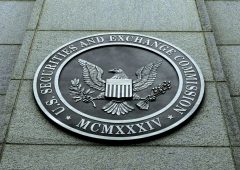Coinbase Enables First AI-to-AI Crypto Transaction
31.08.2024 21:00 1 min. read Alexander Stefanov
Coinbase CEO Brian Armstrong announced a groundbreaking achievement in merging artificial intelligence with cryptocurrency.
The company successfully enabled the first-ever transaction between two AI agents, where the bots used blockchain technology to exchange tokens for services, demonstrating the potential for AI to interact and trade without human intervention.
This transaction, executed using USDC on Coinbase’s Base platform, signals a significant step forward in AI’s ability to conduct business autonomously. Armstrong emphasized that equipping AI agents with crypto wallets opens up new opportunities for them to perform tasks that previously required human involvement.
This could revolutionize sectors like commerce and social media management by allowing AI systems to engage in economic activities directly.
Looking ahead, the ability of AI agents to carry out transactions independently could lead to a new economic landscape where AI-driven entities participate in trade and service exchanges. The broader crypto community has responded positively, recognizing the potential for AI to reshape the future of commerce.
Coinbase also continues to expand its offerings, including the recent introduction of perpetual futures for various cryptocurrencies, allowing for more sophisticated trading strategies.
-
1
Fortune 500 Embrace Stablecoins as Adoption Surges Across U.S. Businesses
11.06.2025 19:00 2 min. read -
2
Elon Musk’s X Prepares to Enter the Fintech Arena
20.06.2025 13:00 1 min. read -
3
China Pushes Digital Yuan Expansion as Global Currency Power Shifts
19.06.2025 17:00 1 min. read -
4
Fiserv to Launch FIUSD Stablecoin Across Its Massive Banking Network
23.06.2025 21:00 1 min. read -
5
Mastercard Integrates Chainlink to Power Direct Crypto Access for Cardholders
25.06.2025 18:00 1 min. read
Coinbase Surges 43% in June, Tops S&P 500 After Regulatory Wins and Partnerships
Coinbase has emerged as the best-performing stock in the S&P 500 for June, climbing 43% amid a surge of bullish momentum driven by regulatory clarity, product innovation, and deeper institutional interest in crypto.
What Brian Armstrong’s New Stats Reveal About Institutional Crypto Growth
Coinbase CEO Brian Armstrong has spotlighted a significant acceleration in institutional crypto adoption, driven largely by the surging popularity of exchange-traded funds and increased use of Coinbase Prime among major corporations.
Whales Buy the Dip as Retail Panics: This Week in Crypto
The latest market turbulence, fueled by geopolitical tensions and investor fear, offered a textbook case of how sentiment swings and whale behavior shape crypto price action.
What Will Happen With the Stock Market if Trump Reshapes the Fed?
Jefferies chief market strategist David Zervos believes an upcoming power shift at the Federal Reserve could benefit U.S. equity markets.
-
1
Fortune 500 Embrace Stablecoins as Adoption Surges Across U.S. Businesses
11.06.2025 19:00 2 min. read -
2
Elon Musk’s X Prepares to Enter the Fintech Arena
20.06.2025 13:00 1 min. read -
3
China Pushes Digital Yuan Expansion as Global Currency Power Shifts
19.06.2025 17:00 1 min. read -
4
Fiserv to Launch FIUSD Stablecoin Across Its Massive Banking Network
23.06.2025 21:00 1 min. read -
5
Mastercard Integrates Chainlink to Power Direct Crypto Access for Cardholders
25.06.2025 18:00 1 min. read


